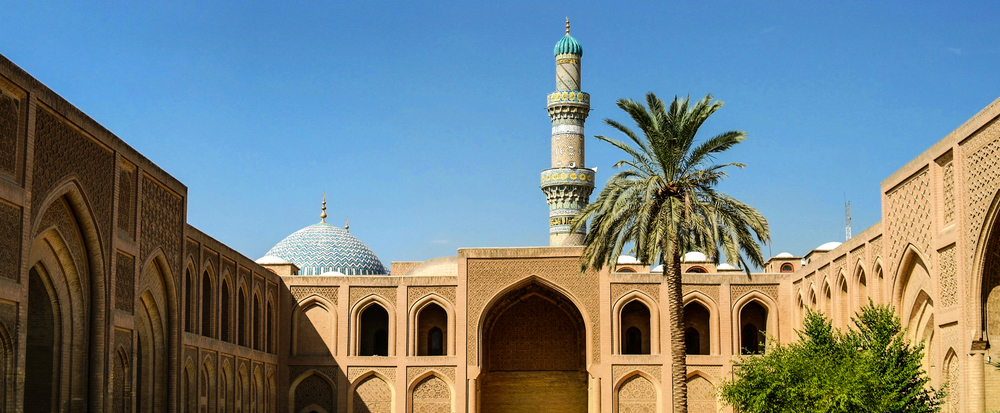How Can There Be Good Innovations (Bida’)?
Answered by Shaykh Yusuf Weltch
Question
How do we understand the distinction of innovations (bid‘a) by the Sunni mainstream into good innovation and innovations of misguidance with the narration of Ibn ‘Umar, “Every bid‘a (innovation) is misguidance, even if people think it is good.”?
Answer
In the Name of Allah, the Most Merciful and Compassionate
The scholars and schools of the Sunni mainstream understood that newly innovated matters in the religion that do not go against the injunctions and principles of the Qur’an, the Sunna, and the consensus of scholarship, are permitted and not considered misguidance.
In support of this is the Prophet’s narration:
The Messenger of Allah (may Allah bless him and give him peace) said, “Whoever adds to this affair of ours (i.e., the religion of Islam) that which is not from it, it is rejected.” [Bukhari and Muslim]
He also said, “Whoever starts a good practice (sunna) in Islam has the reward of it and the reward of all who follow it without decreasing from their reward whatsoever….” [Muslim]
Understanding the Narration of Ibn ‘Umar
The narration of Ibn ‘Umar (Allah be pleased with him) is narrated by Ibn Rajab al-Hanbali (Allah have mercy on him) in his book Fath al-Bari. The narration with its context is as follows:
Waki‘ narrates from Hisham ibn al-Ghaz (Allah have mercy on them), saying, “I asked Nafi‘ about the (additional) call to prayer on the day of Jumu‘a. He said, ‘Ibn Umar said, ‘It is an innovation (bid‘a), and every innovation is misguidance, even if the people deem it good.” [Ibn Rajab, Fath al-Bari]
The above narration is in the context of the additional call to prayer added by Sayyiduna ‘Uthman (Allah be pleased with him). During the time of the Prophet (may Allah bless him and give him peace), the caliphate of Abu Bakr, and that of ‘Umar, there was only one call to prayer when the Imam would sit on the pulpit. [Abbad, Fath al-Qawwi al-Matin]
Due to a need that he saw, ‘Uthman added another call to prayer before the original to give people an added notice of the approaching Jumu‘a prayer time, especially since doing business during that call to prayer is prohibited by clear Quranic text. [Ibid.]
This was the legal judgment (ijtihad) of the Caliph, and it was his right to do that. Note that there is no narration that any other companion, save Ibn ‘Umar, objected to it. [Ibid.]
Legal Judgment
The Messenger of Allah (may Allah bless him and give him peace) said, “When a judge judges and is correct, they have two rewards, and if they judge and are wrong, they have one reward.” [Bukhari]
In this situation, Ibn ‘Umar and other scholars who followed him may have disagreed. Their disagreement does not make good innovations prohibited. There are other issues that are also good innovations and were not objected to by any of the Companions, not even Ibn ‘Umar.
For example:
- Gathering the Qur’an into one text
- Expanding the Prophet’s Mosque
- Etc…
[Khattar, al-Mawsu‘a al-Yusufiyya]
Summary
The legal judgment of Sayyiduna ‘Uthman fits the criteria of a good innovation explained above. It does not go against the Quran, the Sunna, or any established consensus. It is a matter that has been of great benefit to the Umma and has been an established practice even until today.
The singular opinion of a Companion, in this case, the great Ibn ‘Umar (Allah be pleased with him, the teacher of Nafi‘ who was the teacher of Imam Malik (Allah bless them all), does not make Sayyiduna ‘Uthman’s judgment and the subsequent practice of the Umma a misguided innovation.
If someone still decides that leaving the additional call to prayer is better, as some have done, this is their prerogative.
Hope this helps.
Allah knows best,
[Shaykh] Yusuf Weltch
Checked and Approved by Shaykh Faraz Rabbani
Shaykh Yusuf Weltch is a teacher of Arabic, Islamic law, and spirituality. After accepting Islam in 2008, he then completed four years at the Darul Uloom seminary in New York where he studied Arabic and the traditional sciences. He then traveled to Tarim, Yemen, where he stayed for three years studying in Dar Al-Mustafa under some of the greatest scholars of our time, including Habib Umar Bin Hafiz, Habib Kadhim al-Saqqaf, and Shaykh Umar al-Khatib. In Tarim, Shaykh Yusuf completed the memorization of the Qur’an and studied beliefs, legal methodology, hadith methodology, Qur’anic exegesis, Islamic history, and a number of texts on spirituality. He joined the SeekersGuidance faculty in the summer of 2019.
